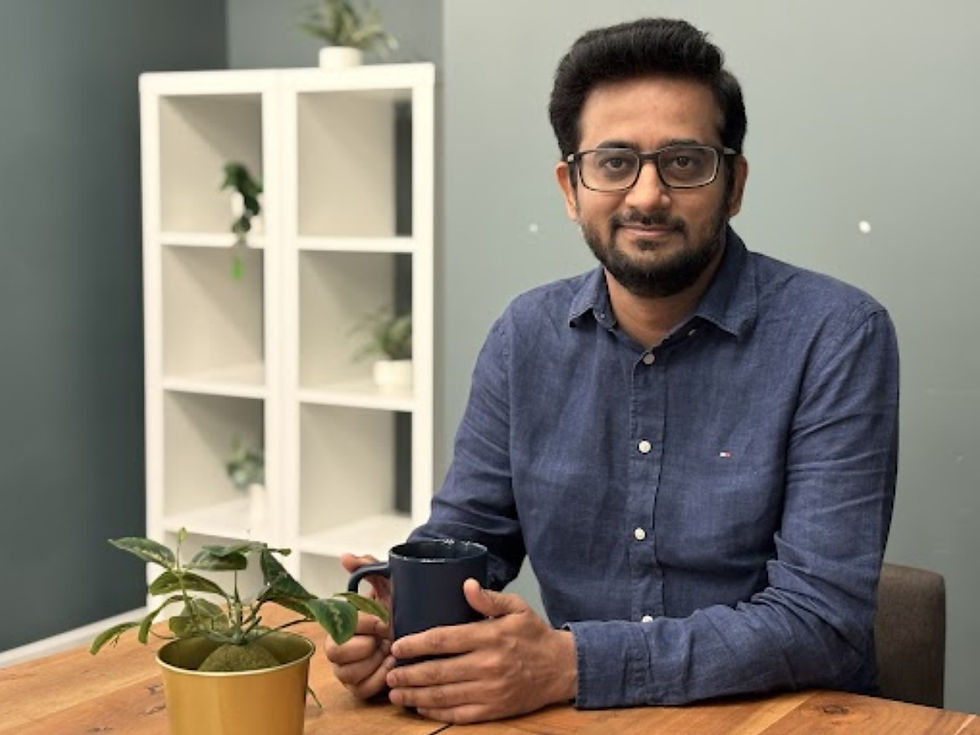Get to Know | Jeff Lee Romero
- Karp Strategies
- Jul 18, 2022
- 4 min read
Updated: Jul 19, 2022
Jeff Lee Romero is a Principal at Karp Strategies. A development finance attorney and urban planner by training with over 20 years of experience in community and economic development, Jeff thrives in helping private and public sector stakeholders to innovate and grow. Prior to Karp Strategies, Jeff spearheaded the economic development practice at Capalino, served as an associate at one of New York’s foremost affordable housing law firms, and led NYCEDC’s Strategic Investments Group, where he oversaw high-profile initiatives and programs such as the New York City Industrial Development Agency program and NYCEDC’s new markets tax credit program. A native New Yorker with roots in the Latinx and Asian communities, Jeff is a proud child/grandchild of immigrants from China and Colombia.

What drew you to Community and Economic Development?
Between college and grad school I dipped my toe into a few different jobs - high school science teacher, publishing, and website development. As a way of pulling together several disparate interests, I got together with a friend of mine and we built a website that featured personal vignettes and observations from our group of friends, with NYC and the urban environment as the central theme. That experience helped crystallize the idea of building a career around improving the urban environment and urban communities, and as a native New Yorker (Queens, baby!) the idea of building stronger, more equitable communities resonated with me. That led to me getting a job helping run a community economic development program focused on providing assistance to entrepreneurs of color in Bedford Stuyvesant, Brooklyn. Then I really caught the bug!
When it comes to private-public sector collaborations, you've engaged with several private businesses functioning in the public sector. What were your major lessons or challenges from the experiences you've had in the past that are contributing to your current work?
At a high level, I’ve found that I’ve learned a lot about the intersection of business mandates and public policy, and the strategies to finding the areas of overlap and synergy. There are going to be areas of alignment, and there will also be competing priorities. It’s important to know what business points are non-negotiable for both the public and private sector partners. And to make sure that all parties see the benefits of striking a deal that results in substantial wins. Often there is ample room for everyone to walk away feeling like their goals were accomplished.
Another lesson I’ve learned is that everyone, every business, has a story. It’s usually a personal story: where does the CEO live, where do his/her workers live, what’s the company’s origin story, what makes them tick. It’s not enough to just push paper and numbers around; every business is made up of people and their stories and backgrounds inform their future strategies.
What do you think are the integral strategies to create more inclusive economies post pandemic?
The obstacles for more inclusive economic development that were present prior to the pandemic are still present today: lack of capital, access to opportunity, and access to networks (funding, partnering, mentorship and expertise). One thought is that, while we have to work with a wide range of businesses in thinking holistically about strengthening our local economies, it’s important to carve out space to focus on small businesses, specifically. That can mean a lot of work and a real investment of time, but it’s worthwhile in terms of equitable outcomes.
Another idea is that it will be important for policy leaders to find ways to ensure that long-term assets — like housing and real estate — are affordable to the businesses and residents who previously have been excluded from opportunity. This is especially important since many entrepreneurs from disadvantaged backgrounds have really borne the brunt of the negative impacts of the pandemic, and so support is needed to get those businesses back on their feet and set up for success.
What excites you most about working with Karp Strategies?
We do a wide range of projects, so no one day is like the other. I can be working on offshore wind one day, and the next I’m working on supply chain strategy or real estate and market analysis the next. I’m working on projects located in Washington, D.C., and projects located in Maine. I love the geographic variety as well as the opportunity to get to know people from different communities.
On top of that, the people at Karp Strategies are dynamic, smart and inspiring! That’s a huge deal to me. I find that the ideas that my team generates are a continual source of inspiration. It’s refreshing to be around planners and strategists who think creatively.
Finally, I’m a big believer in our values of teamwork and of equity-oriented work. We support each other, and we have fun while we’re doing it!
What encouraged you to pursue a degree in Urban Planning after a degree in Biology?
Biology was interesting — still interesting today as we watch science race to catch up to COVID-19 — but by the time I graduated college I was ready for a different direction. When I eventually started doing community-based economic development work, I loved it, but also saw the limits of being just one person doing this work. I wanted to find a way to scale my efforts, and to build skills — and credentials — that would allow me to amplify my impact. A graduate degree in urban planning seemed like one way to do that. I ended up doing a combined degree program — got my JD after graduating from Brooklyn Law School — with the goal of being a community development-oriented practitioner and leader. I’m happy about that choice!




Comments